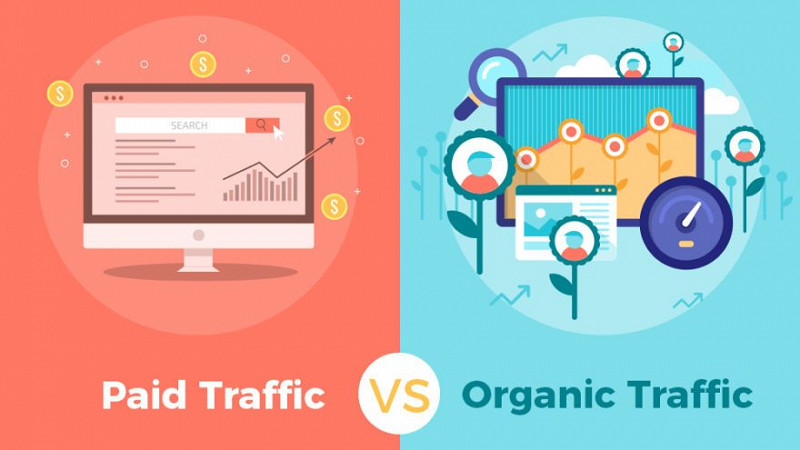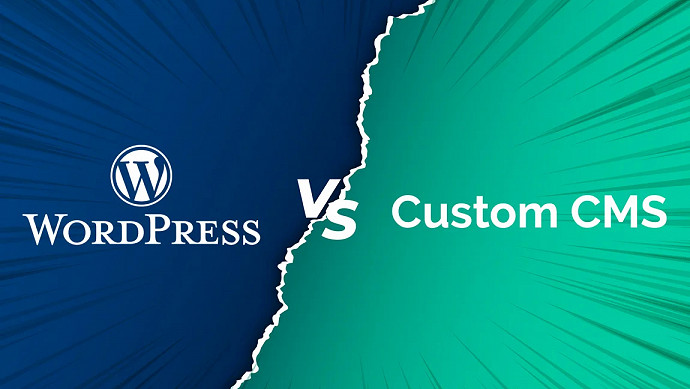In the competitive landscape of online business, achieving visibility on search engine results pages (SERPs) is crucial for driving traffic to your website. Two primary methods of gaining visibility are through organic search engine results and paid search engine results. While both approaches have their merits, organic search results offer unique advantages that make them a superior choice for sustainable growth and long-term success. In this post, we'll explore the differences between organic and paid search results, and why organic should be the cornerstone of your web design and digital marketing strategy.
What are Organic Search Engine Results?
Organic search engine results are listings on SERPs that appear naturally based on their relevance to the user's search query. These listings are determined by complex algorithms used by search engines like Google, which analyse various factors such as website content, backlinks, user engagement, and website authority. Organic results are not influenced by direct payments to the search engine, making them a pure reflection of a website's credibility and relevance to the user's search intent.
Advantages of Organic Search Engine Results:
1. Credibility and Trustworthiness: Organic search results are perceived as more credible and trustworthy by users compared to paid advertisements. Studies have shown that users are more likely to click on organic listings, viewing them as unbiased recommendations from the search engine.
2. Cost-Effectiveness: Unlike paid search results, which require ongoing investment to maintain visibility, organic search results provide long-term value without the need for continuous spending on advertising. While achieving top rankings may require initial investment in SEO (Search Engine Optimization), the benefits can be sustained over time with minimal ongoing costs.
3. Higher Click-Through Rates (CTR): Research has consistently shown that organic search results receive higher click-through rates compared to paid advertisements. Users tend to skip over paid listings in favour of organic results, especially when they perceive the content to be more relevant to their needs.
4. Sustainable Growth: Organic search results contribute to sustainable growth by building a strong foundation for your website's online presence. By focusing on creating high-quality, relevant content and optimising your website for search engines, you can attract organic traffic that continues to flow over time, even as trends and algorithms evolve.
Challenges of Organic Search Engine Results:
1. Time and Patience: Achieving top rankings in organic search results requires time, patience, and consistent effort. It may take several months to see significant improvements in rankings, particularly for competitive keywords and industries.
2. Algorithm Changes: Search engine algorithms are constantly evolving, which can impact a website's rankings in organic search results. Keeping up with algorithm updates and adjusting your SEO strategy accordingly is essential for maintaining visibility and relevance.
3. Competition: Competition for top rankings in organic search results can be fierce, especially in saturated industries. To stand out from competitors, you need to invest in comprehensive SEO strategies that prioritise quality content, user experience, and technical optimisation.
What are Paid Search Engine Results?
Paid search engine results, also known as pay-per-click (PPC) advertising, are sponsored listings that appear at the top or bottom of SERPs. These listings are displayed based on bids placed by advertisers for specific keywords or phrases. Advertisers pay a fee each time a user clicks on their ad, hence the term "pay-per-click."
Advantages of Paid Search Engine Results:
1. Immediate Visibility: Paid search results offer immediate visibility on SERPs, allowing advertisers to reach their target audience quickly. Unlike organic results, which may take time to climb the rankings, paid ads can appear at the top of the page almost instantly after activation.
2. Targeted Advertising: Paid search advertising allows for precise targeting based on factors such as keywords, location, demographics, and browsing behaviour. This targeted approach ensures that ads are displayed to users who are most likely to be interested in the products or services being promoted.
3. Flexibility and Control: PPC advertising platforms like Google Ads offer extensive customisation options, allowing advertisers to control various aspects of their campaigns, including budget, ad copy, targeting parameters, and bidding strategy. This flexibility enables advertisers to optimise their campaigns for maximum effectiveness and ROI.
Challenges of Paid Search Engine Results:
1. Cost: While paid search results offer immediate visibility, they come at a cost. Advertisers must pay for each click on their ads, which can add up quickly, especially for competitive keywords with high bid prices. Without careful budget management and optimisation, PPC advertising can become expensive.
2. Ad Fatigue: Paid ads may be perceived as intrusive or less trustworthy by some users, leading to "ad fatigue" and lower click-through rates over time. Users may develop banner blindness and instinctively ignore sponsored listings in favour of organic results or other forms of content.
3. Dependency on Advertising: Unlike organic search results, which provide sustained traffic without ongoing investment, paid search results rely on continuous advertising spend to maintain visibility. Once advertising stops, traffic from paid listings diminishes, making it challenging to sustain growth without additional investment.
Why Organic Search Results Are the Better Option:
While both organic and paid search results have their merits, organic search results offer distinct advantages that make them the preferred choice for long-term success. Organic listings are viewed as more credible and trustworthy by users, resulting in higher click-through rates and sustainable growth without ongoing advertising costs. By investing in comprehensive SEO strategies that prioritise quality content, user experience, and technical optimisation, businesses can establish a strong online presence that attracts organic traffic and drives meaningful engagement. While paid advertising can complement organic efforts, it should be viewed as a short-term tactic rather than a long-term strategy. Ultimately, focusing on organic search results lays the foundation for lasting success in the ever-evolving landscape of online marketing.
In summary, organic search engine results reign supreme for your website's visibility and credibility. By prioritising SEO best practices and creating valuable, relevant content, you can achieve sustainable growth and establish your brand as a trusted authority in your industry. While paid search advertising can provide immediate visibility, organic search results offer long-term benefits without the ongoing costs associated with paid advertising. Invest in organic search strategies today to reap the rewards tomorrow and beyond.



